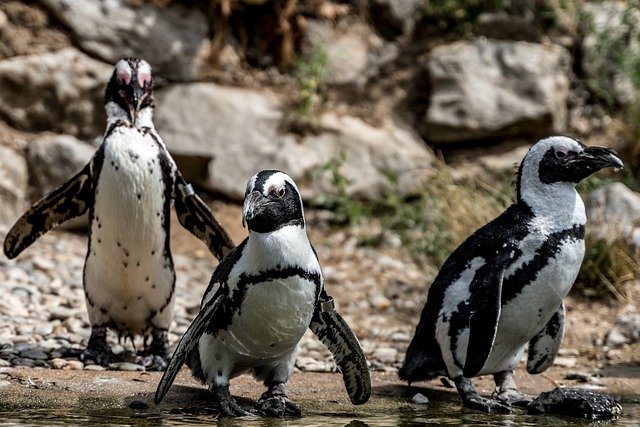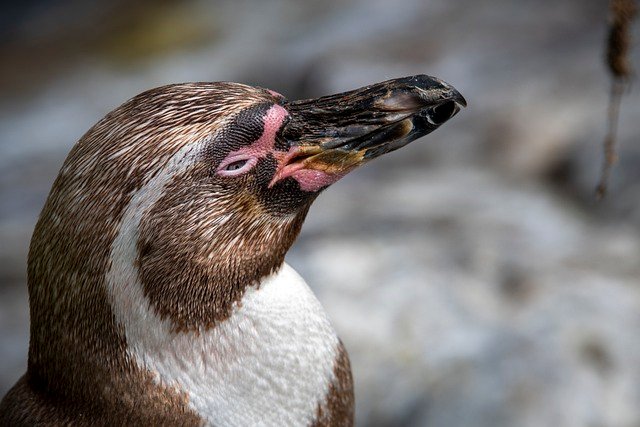**Topic: "Climate Change and Its Impact on Penguin Populations: A Deep Dive into Adaptation

Climate Change and Its Impact on Penguin Populations: A Deep Dive into Adaptation
Introduction
As we navigate the complexities of climate change, its effects on wildlife have become increasingly evident. Among the most affected species are penguins, iconic birds of the Southern Hemisphere that rely on specific environmental conditions for their survival. This post explores how climate change is impacting penguin populations and the adaptations they are employing to cope with these changes.
The Current State of Penguin Populations
There are 18 species of penguins, ranging from the well-known Emperor and King penguins to the smaller Adélie and Little Blue penguins. Many of these species inhabit regions that are experiencing significant climatic shifts, particularly in Antarctica and sub-Antarctic islands.
Key Statistics
- Emperor Penguins: Populations are declining, with some studies predicting a potential 19% decrease by 2100 due to melting sea ice.
- Adélie Penguins: Their populations are fluctuating, with some colonies thriving while others are in decline, largely dependent on local environmental conditions.
- Magellanic Penguins: These penguins are experiencing habitat loss and changes in prey availability due to rising ocean temperatures.
How Climate Change Affects Penguins
1. Melting Ice and Habitat Loss
The most immediate impact of climate change on penguins is the loss of ice habitats. Penguins, especially Emperor and Adélie species, rely on sea ice for breeding, feeding, and shelter. As temperatures rise, ice melts earlier in the season, leading to a mismatch between the timing of chick hatching and the availability of food.
2. Changes in Prey Availability
Penguins primarily feed on fish, krill, and other marine organisms. Climate change affects ocean temperatures and currents, which in turn influences the distribution and abundance of these prey species. For example, warming waters can lead to a decline in krill populations, a crucial food source for many penguin species.
3. Increased Competition and Predation
As penguin habitats change, they may face increased competition for food from other marine predators. Additionally, warming temperatures may allow for the encroachment of land-based predators, such as seals, which can threaten penguin colonies.
Adaptation Strategies
Despite these challenges, penguins are exhibiting remarkable adaptability. Here are some strategies they are employing:
1. Shifting Breeding Seasons
Some penguin species are altering their breeding times to align with changes in food availability. For instance, Adélie penguins in certain areas have been observed to breed earlier in the season to coincide with the peak abundance of krill.
2. Expanding Range
Certain penguin species are expanding their range in search of more suitable habitats. For example, some populations of Magellanic penguins are moving northward as their traditional breeding grounds become less hospitable.
3. Behavioral Changes
Penguins are also exhibiting behavioral adaptations, such as changing their foraging patterns to exploit different food sources or altering their social structures to enhance survival.
Conclusion
The impact of climate change on penguin populations is profound and multifaceted. While these remarkable birds are showing signs of resilience and adaptability, the challenges they face are significant. Conservation efforts aimed at mitigating climate change and protecting penguin habitats are crucial for ensuring their future.
Call to Action
As individuals, we can contribute to the conservation of penguins and their habitats. Supporting organizations focused on climate action, reducing our carbon footprint, and spreading awareness about the plight of these incredible birds are essential steps we can take.
References
- National Geographic: Penguins and Climate Change
- World Wildlife Fund: Penguins
- Journal of Avian Biology: Adaptations in Penguins
Let’s work together to protect our planet and its remarkable wildlife!

Upvoted! Thank you for supporting witness @jswit.